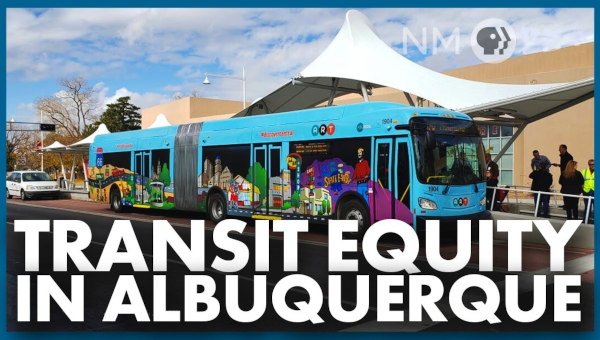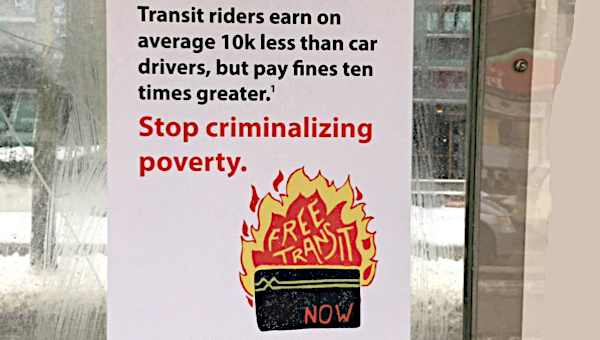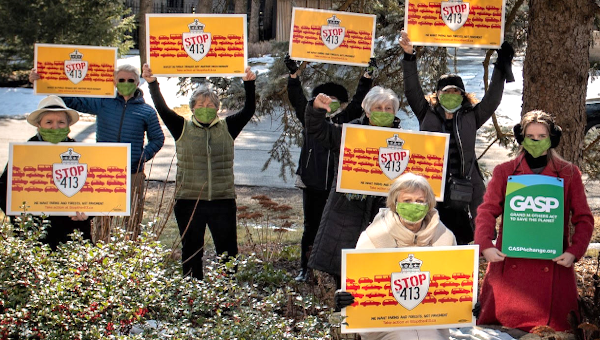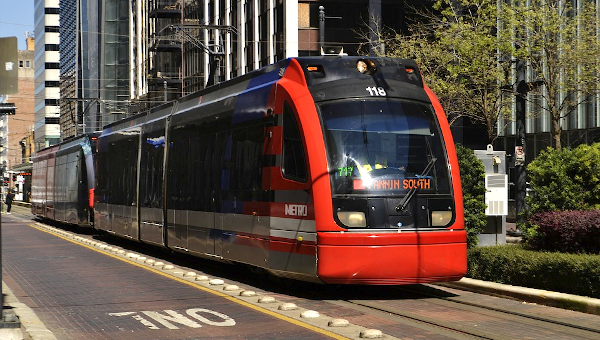Campaigning for re-election in April 2014, Liberal leader and Premier of Ontario Kathleen Wynne announced that Ontario would invest $29-billion in roads and transit. She did not make this announcement from the Office of the Premier at Queen’s Park or at Metrolinx (Ontario’s transit authority) headquarters on Bay Street. She spoke at the Toronto Regional Board of Trade, at an event sponsored by global, mostly foreign, multinational corporations.
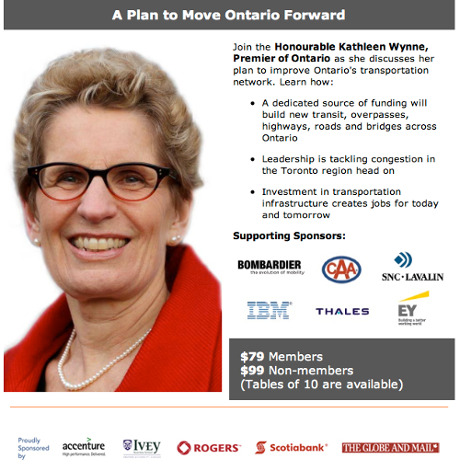 The significance of Wynne’s preference for a private venue sponsored by an elite group of powerful multinationals went unremarked by mainstream media. Nor did they mention that for the second year in a row, Wynne was to be a keynote speaker at the 2014 annual Canadian Centre for Public-Private-Partnerships (CCPPP) conference. It is significant because the multinational corporations that sponsor CCPPP conferences stand to reap a huge financial benefit from that $29-billion investment in public-private-partnerships (P3s).
The significance of Wynne’s preference for a private venue sponsored by an elite group of powerful multinationals went unremarked by mainstream media. Nor did they mention that for the second year in a row, Wynne was to be a keynote speaker at the 2014 annual Canadian Centre for Public-Private-Partnerships (CCPPP) conference. It is significant because the multinational corporations that sponsor CCPPP conferences stand to reap a huge financial benefit from that $29-billion investment in public-private-partnerships (P3s).
30-Year Private Contracts
Smaller, local construction, engineering and architectural firms are unlikely to receive the contracts for designing and building the Eglinton Crosstown or the Sheppard and Finch LRTs. Unionized, skilled mechanics and electricians will not be eligible for any of the maintenance jobs required to keep them running smoothly and safely. And ten years after it is built, Toronto Transit Commission (TTC) workers may no longer be allowed to operate the new rapid transit lines. All these jobs will be done by a global consortium under a 30-year contract with the province.
This is nothing new. The government of (former Premier) Dalton McGuinty had a similar arrangement with various private corporations involved in eHealth, Ornge Air Ambulance and the Trans Canada gas plant that was cancelled in Oakville. Global multinationals have been very successful at convincing McGuinty, and now Premier Wynne, to open new markets in public health, energy and transit infrastructure. They like P3s because the public bears all the financial risk while the private partners are guaranteed hefty profits.
And so while more than half of Torontonians deal with precarious employment, unemployment, underemployment and austerity, it’s bonanza time for corporate CEOs and their shareholders.
Even when a recent report by Ontario Auditor General Bonnie Lysyk recommended using the public sector instead of P3s, Premier Wynne refused to abandon her corporate allies. According to the Auditor General, the 74 infrastructure projects built by the Wynne government using
Alternate Financing and Procurement (AFP, its term for P3s) will cost Ontario an additional $8-billion.
Toby Sanger, CUPE economist and contributor to the Progressive Economics Forum, argues that the report did not go far enough: “While the report is damning already, in my view it could and should have gone further in calling for much greater reform as well as transparency and accountability.” In email correspondence, Sanger suggested that lacking any legislation to govern P3s, Canada may have one of the least accountable P3 systems in the world.
The Toronto Transit Commission (TTC)
But when asked to comment on Lysyk’s recommendation by Globe and Mail reporter Adrian Morrow, Infrastructure Ontario CEO Bert Clark turned reality on its head by claiming
implementing it would be a “travesty.” And Premier Wynne argued that “her government does not have the capacity,” the story said. This is simply not true for transit projects in Toronto. The real travesty occurred in 2012, when Metrolinx took control of the Presto Fare Card and the Eglinton Crosstown LRT away from the TTC, in order to use P3s/AFP.
The TTC’s Expansion Department had offices and staff to oversee public sector delivery of the Eglinton Crosstown. Officials at Metrolinx could have negotiated to use this public sector expertise, but chose to delay the project in order to switch to a public-private-partnership model. Infrastructure Ontario is now poised to hand over a 30-year contract for design, construction and maintenance of this line to a multinational consortium.
The TTC had a tentative agreement with another company for an open fare system that was much more cost-efficient and would have been compatible with the Presto card, but former Transportation Minister Bob Chiarelli threatened to withdraw gas-tax money and funding for new streetcars and the Eglinton Crosstown if the TTC didn’t adopt Presto on his terms.
Under provincial oversight, costs for the Presto Fare Card have ballooned from $250-million to $700-million. According to former Auditor-General Jim McCarter, the Presto Next Generation P3 “is one of the most expensive fare card systems in the world” – and it’s still not ready for the Pan Am Games now less than half a year away. Metrolinx began to solicit proposals from global multinationals for the Eglinton Crosstown LRT early in 2013. The short-listed consortia are Crosslinx Transit Solutions and Crosstown Transit Partners. The successful bidder is to be chosen this spring.
Who are these companies that are competing to take over our new rapid transit for the next 30 years? And who are their lobbyists?
| EGLINTON CROSSTOWN LRT CONSORTIA | |
|---|---|
| Crosslinx Transit Solutions | Crosstown Transit Partners |
| SNC-Lavalin | Fengate Capital Management Ltd. |
| ACS Infrastructure Canada | OHL Concesiones S.A. |
| EllisDon | STRABAG Inc |
| Aecon | Bechtel Development Company, Inc. |
| Dragrados Canada | Obayashi Canada Holdings, Ltd. |
| IBI Group | |
Crosslinx Transit Solutions
ACS INFRASTRUCTURE / DRAGADOS
ACS Infrastructure (Actividades de Construcción y Servicios) is a Spanish construction and engineering conglomerate that with Dragados is under contract to build a tunnel connecting Long Island Railroad to Manhattan’s East Side. The $8.25-billion project is scheduled to be completed in 2019. However a lawsuit against Dragados over losses incurred by Judlau Contracting, a company owned by an ACS Infrastructure competitor, OHL, threatens to delay the project indefinitely.
Dragados
and Judlau Contracting Inc. are being sued by the U.S. for falsely claiming to hire disadvantaged businesses under a federally funded project. The construction project is partially funded through a “New Start” grant from the Federal Transit Administration.
| ACS Infrastructure/Dragados lobbies to the Ministry of Transportation 2013-2014 | |||||
|---|---|---|---|---|---|
| Lobbyist | Last Amendment | Client Name | Company/Org. | Lobbyist Type | Registration No. |
| Amber Crawford | 2014/03/03 | ACS Infrastructure Canada Inc. | StrategyCorp Inc. | Consultant Lobbyist | CL1624-20140219150233 |
| Martin Green | 2014/03/03 | ACS Infrastructure Canada Inc. | StrategyCorp Inc. | Consultant Lobbyist | CL1372-20130724090717 |
| John Duffy | 2014/02/28 | Fair Payment Reform Ontario | StrategyCorp Inc. | Consultant Lobbyist | CL0059-20140305140303 |
| David MacNaughton | 2013/11/12 | ACS Infrastructure Canada Inc. | StrategyCorp Inc. | Consultant Lobbyist | CL0790-20130724090742 |
| Leslie Noble | 2013/11/12 | ACS Infrastructure Canada Inc. | StrategyCorp Inc. | Consultant Lobbyist | CL0058-20130724090726 |
| Joseph Pickerill | 2013/11/12 | ACS Infrastructure Canada Inc. | StrategyCorp Inc. | Consultant Lobbyist | CL1500-20140314130323 |
| Amber Crawford | 2014/03/04 | Dragados Canada Inc. | StrategyCorp Inc. | Consultant Lobbyist | CL1624-20140219150229 |
| Martin Green | 2014/03/04 | Dragados Canada Inc. | StrategyCorp Inc. | Consultant Lobbyist | CL1372-20130724090751 |
| John Duffy | 2014/02/28 | Dragados Canada Inc. | StrategyCorp Inc. | Consultant Lobbyist | CL0059-20130719160739 |
| David MacNaughton | 2013/11/12 | Dragados Canada Inc. | StrategyCorp Inc. | Consultant Lobbyist | CL0790-20130724090723 |
| Leslie Noble | 2013/11/12 | Dragados Canada Inc. | StrategyCorp Inc. | Consultant Lobbyist | CL0058-20130724090723 |
| Joseph Pickerill | 2013/11/12 | Dragados Canada Inc. | StrategyCorp Inc. | Consultant Lobbyist | CL1431-20130724090738 |
| (Source: Office of the Integrity Commissioner) | |||||
SNC-LAVALIN
SNC-Lavalin is the only Canadian based multinational in the three consortia that bid for the Scarborough/Sheppard maintenance and storage facility and are on the short list for the Eglinton Crosstown. It recently won the contract for the Ottawa Light Rail Project and has completed several transit projects in Canada including the Vancouver Canada Line and Skytrain and extensions for the Calgary LRT. For the Canada Line, SNC-Lavalin incurred cost overruns of $500-million, which is to be recouped using revenue from Vancouver’s existing bus service. Many small businesses along the Canada Line route were lost due to the company’s rush to complete the project ahead of schedule.
The United Steelworkers is calling for an investigation of the $1-billion contract awarded to SNC-Lavalin for the extension of Hwy 407 east from Pickering.
Five years after completion of the Canada Line, the B.C. Human Rights Tribunal awarded $2.5-million to 40 temporary foreign workers from Latin America who sued SNC-Lavalin, SELI Canada and SNCP Seli for paying them lower wages than European workers on the construction site.
SNC-Lavalin has been banned from bidding for any World Bank projects for ten years due to “unfair and illegal means to secure the consultancy of the $2.9-billion Padma bridge project” in Bangladesh.
| SNC-LAVALIN lobbies to the Ministry of Transportation 2013 – 2014 | |||||
|---|---|---|---|---|---|
| Lobbyist | Last Amendment | Client Name | Company/Org. | Lobbyist Type | Registration No. |
| Sam Boutziouvis | 2014/03/31 | SNC-Lavalin Group Inc. | In-house Persons/Partnerships | PP0807-20140331160308 | |
| Cathy Worden | 2013/10/30 | SNC-Lavalin Group Inc. | Hill+Knowlton Strategies | Consultant Lobbyist | CL1579-20131119171145 |
ELLIS DON
Ellis Don is global construction services company with offices across Canada and a head office in Mississauga. In 2012, the Sheet Metal Workers Union and International Brotherhood of Electrical Workers brought Ellis Don before the Ontario Labour Relations Board (OLRB) for hiring non-union workers in Sarnia. The OLRB ruled against Ellis Don, according to the Sarnia Working Agreement of 1958, but gave it a two-year waiver.
The waiver gave Ellis Don time to use extensive lobbying and donations to provincial Liberals and Conservatives to negate the Sarnia Working Agreement under Bill 74, Fairness and Competitiveness in Ontario’s Construction Industry Act, 2013. Leaked documents revealed a generous donation by the company at a fundraiser for Conservative Leader Tim Hudak, and also to the Liberal Party coincident with Bill 74’s tabling in the legislature, causing Premier Wynne to withdraw her support.
Although Bill 74 failed in the legislature, the Supreme Court of Ontario later awarded Ellis Don an exemption.
AECON
According to its website, Aecon is “one of Canada’s largest and most diverse construction and infrastructure development companies,” with almost 50 per cent of its shares owned by German construction heavyweight Hochtief AG.
Aecon and its subsidiaries have made successful bids on a number of transit P3s including the Millenium Skytrain project in Vancouver, Highway 407, the Edmonton LRT project and Waterloo Region LRT.
The president of Aecon’s Concessions Group, Steve Nackan, is on the board of directors of the Canadian Council for Public Private Partnership and in 2013 was named its P3 champion.
In their analysis of provincial P3 projects, Hospital Employees Union reported that as a subsidiary involved in constructing the guideway for the Millenium Skytrain, Aecon successfully sued the B.C. government for $36-million, claiming damages for delays caused by the Canadian environmental assessment process and private rail right-of-ways.
It is still undecided whether Aecon provided value for money in the construction of Highway 407. Safety standards for lighting, medians, on and off ramp lengths and the radius of interchange inner loop ramps did not conform to provincial Ministry of Transportation standards.
Crosstown Transit Partners
OHL CONCESIONES S.A.
Obrascon Huarte Lain, S.A. is a Spanish multinational engineering and construction company. In 1998, they bought 50.1% of Judlau Contracting, a New York based construction company. In 2011, their contract with the government of Gibraltor to build an Airport Access
Tunnel was terminated for failing to build the project on time and on budget. In May 2012, OHL sued the Gibraltor government for £26.5-million for breach of contract. The High Court of Justice of England and Wales ruled against OHL in 2014.
STRABAG
Strabag, headquartered in Vienna, Austria, is one of the largest construction companies in Europe. It was recently awarded $290-million contract to build a 15 km waste-water tunnel in York Region. The Christian Labour Association of Canada (CLAC) will supply the workers for the project. About CLAC the Canadian Labour Congress says:
“CLAC’s primary goal is to undercut the work of legitimate, democratic and truly representative unions and to roll back the clock on gains made over decades. All this in the name of creating a positive relationship with anti-union employers, who are eager to keep real unions out.”
BECHTEL DEVELOPMENT COMPANY INC.
The largest engineering company in America, the Bechtel Group has received $41.3-billion in U.S. government contracts since 2000. In addition to connections to the bin Laden family and a $680-million backroom deal with the Bush administration to rebuild Iraq, Bechtel is best known for privatizing the Cochabamba water supply in Bolivia. After signing a contract with former dictator Hugo Banzer in 1999, a consortium in which Bechtel had a 27.5% interest increased water rates by 50% and made it illegal for residents to collect rainwater. Ongoing protests and nationwide economic collapse led to cancellation of the contract.
OBAYASHI CANADA HOLDINGS LTD.
Obayashi is a Japanese multinational construction and engineering firm that was established in Tokyo in 1892. While mostly working in Asia and Australia, it expanded into Canada by merging with Kenaidan Construction in 2011. After the Fukushima nuclear meltdown, the Japanese government contracted Obayashi to clear the site of hazardous nuclear waste. Homeless workers were hired at less than minimum wage.
| Privatization of Transportation Infrastructure in Canada | |||
|---|---|---|---|
| MULTINATIONAL | HEAD OFFICE | TRANSPORTATION SERVICES | LOCATION |
| ACS Infrastructure Dragados | Spain | Highway 407 | GTA |
| Eglinton Crosstown* | GTA | ||
| Valley Line* | Edmonton | ||
| Alstom Power and Transportation | France | Ottawa Light Rapid Transit | Ottawa |
| Valley Line* | Edmonton | ||
| SNC-LAVALIN Group Inc. | Canada | Canada Line Skytrain | Vancouver |
| Confederation Line | Ottawa | ||
| Highway 407 Eastern extension | GTA | ||
| Evergreen Skytrain | Greater Vancouver | ||
| Eglinton Crosstown* | GTA | ||
| Valley Line* | Edmonton | ||
| Accenture | Ireland/US | Presto fare card system | GTHA |
| THALES | France | ||
| Veolia Transportation | France | VIVA | York Region |
| Veolia | Greater Montreal Area | ||
| Valley Line* | Edmonton | ||
| MV Transportaion | U.S. | Translink HandyDART | Vancouver |
| Paratransit | St. John’s, Nfld. | ||
| Barrie Transit Bus Operations and Maintenance Facility |
Barrie | ||
| Bombardier | Canada | Go train maintenance/operations | GTHA |
| Valley Line* | Edmonton | ||
| Plenary Group | Pointe-Saint-Charles-Rail-Maintenance Facility* | Quebec | |
| *short listed bid | |||
No More Corporate Jackals
Why would we want to give control of our new rapid transit lines to these corporate jackals? Companies with a history of corrupt business practices and labour bashing should be kept at bay, not pandered to with a government agency biased in their favour. We never agreed to give up our first born. And yet it is our children and grandchildren who will become the indentured servants of high interest bond holders, if we fail to act now.
1.8 million people ride the TTC per day. Fares alone pay for 70% of the TTC’s $1.5-billion operating budget – the highest fare-box portion in North America. But we continue to deal with with overcrowding, inadequate service and fare increases, because the Wynne government refuses to return to subsidizing service at pre-1995 levels. Privatizing new transit lines will only make things worse.
The public-sector capacity to build, maintain and operate transit, hospitals, schools, has been severely undermined by decades of neoliberal policies and practices. In challenging this latest offensive of P3s, we will need to thoroughly rethink how to rebuild public-sector capacity to democratically plan and deliver the next generation of infrastructural needs. Creating a political movement that raises these issues is central to making this happen.
The irony is that no one knows this better than Kathleen Wynne. As founder of the Metro Parent Network, she led the fight against Harris cuts and reform to education in 1999. Back then, she believed you could accomplish more by working on the edge of the system. In her case it was true.
TTCriders is calling on Premier Wynne to cancel the Alternate Financing and Procurement (AFP) model for the Eglinton Crosstown, and return to public-sector building of all rapid transit projects in Toronto. The public sector should also operate and maintain these new lines. You can sign the petition here. •


